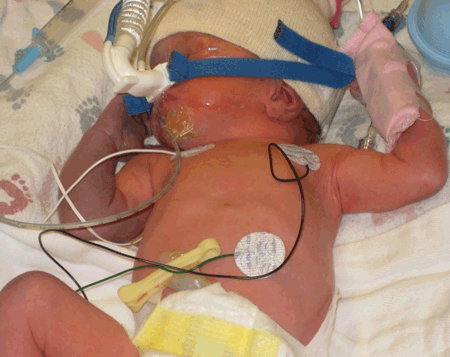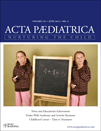Long-term cognitive outcomes of extremely low-birth-weight infants: the influence of the maternal educational background
Abstract
Aim: The purpose of the present contribution is to analyse the relationships between perinatal risk factors, social parameters and neurodevelopmental outcomes in extremely low-birth-weight (ELBW) children up to the age of 10–13 years.
Methods: Of 200 live-born ELBW infants, 148 were enrolled in the high-risk infant follow-up programme. Each follow-up visit included a neurodevelopmental examination and an interview with the infant’s parents. Multivariate analyses using SPSS (version 17.0, Chicago, IL, USA) were conducted, and a p-value of <0.05 indicated a statistically significant result.
Results: The results of the logistic regression analysis of the biological and sociodemographic risk factors illustrated that a low maternal educational background is the most important factor (OR, 21.9) associated with a decreased composite intelligence quotient (IQ) in children between 10 and 13 years old. A Grade III or Grade IV intraventricular haemorrhage (IVH) or periventricular leukomalacia (PVL) were also associated with decreased IQ at the age of 10–13 years (OR, 6.9). These results were confirmed by ANOVAs with repeated measurements.
Conclusion: Maternal educational background is the strongest predictor of long-term neurodevelopment in ELBW children. The findings emphasize the need for special support and follow-up care services for poorly educated parents.





